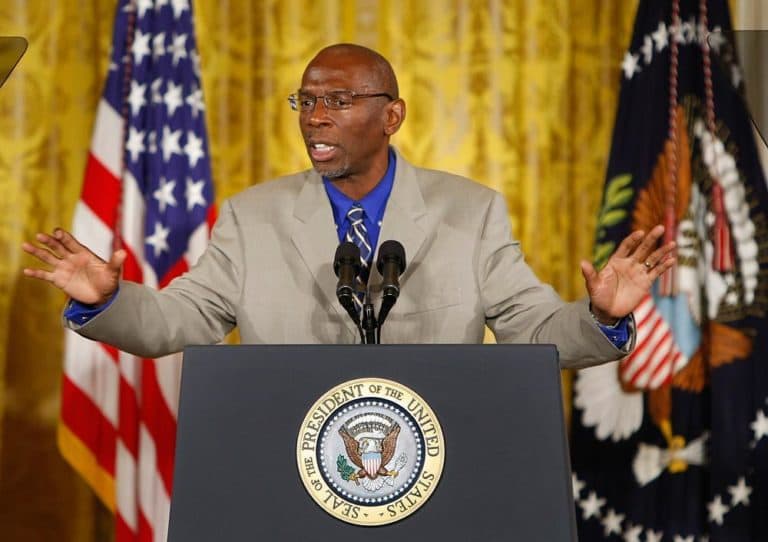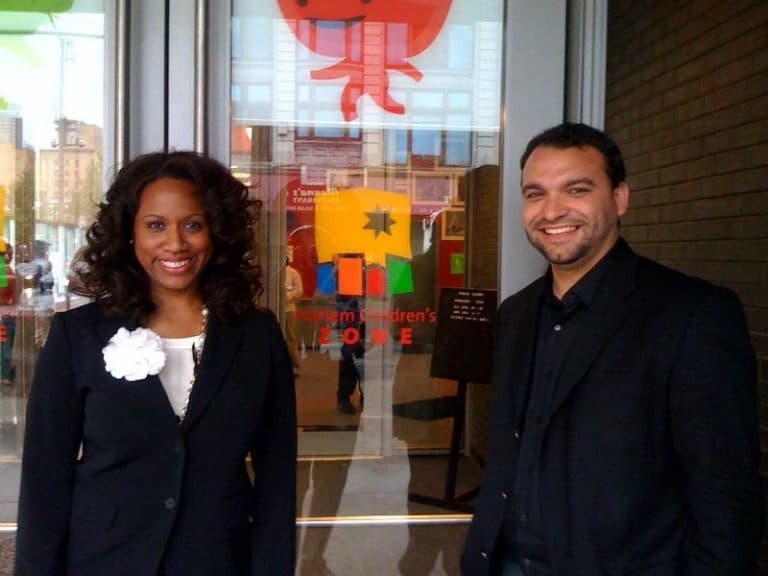Advertisement
What Boston Can Learn In Harlem's Children's Zone
Resume
The Harlem Children's Zone is a globally lauded model for youth development in troubled neighborhoods. But can it work in Boston?
City Council President Mike Ross led a delegation to Harlem on Tuesday to find out.
"I think sometimes to keep the idealisim and innovation burning in our hearts and souls for the work that we do, sometimes it's nice to leave our work, go elsewhere, see what other people are doing, see success stories, see challenges, and just be inspired, and that's really what this trip is about," Ross says.
In a way, this bus ride started all the way back at the end of 2009, when Mayor Thomas Menino first trotted out the phrase "Circle of Promise."
The idea is to target a specific five-square-mile area of concern in Boston, most of it in Dorchester and Roxbury, to get families, churches, businesses and non-profits working jointly with the public schools to provide cradle to college support for the city's most vulnerable kids.
Dozens of non-profits and other stakeholders have signed on, but many involved say the effort has stagnated — because of money, but also because there are competing ideas of how to proceed.

"There's different ideas out there, but I think that's OK," Ross says. "I think, you know, One of the reasons why I wanted to go on this trip is to find out for myself what's out there as it relates to this whole wraparound services, Circle of Promise thing."
The Harlem Children's Zone is a huge, gleaming complex on East 125th street. Its founder, president and CEO is the brilliant, charismatic, poetry-writing, Taekwondo-practicing, American Express commercial-starring, Harvard degree-holding rock star guru of the non-profit world, Geoffrey Canada.
Canada began working at what became the Harlem Children's Zone in 1990, at the height of the crack epidemic, when no one could avoid Harlem came to Harlem.
"We started out literally trying to rebuild the community. When I talk about going block by block, I really mean it," Canada says.
The zone started off as a tiny collection of blocks in which Canada committed to follow and support the academic careers of every child, no matter how challenging. Today the zone is 97 blocks, supported by more than 2,000 employees working off a $75 million dollar annual budget, 40 percent from public sources, and 60 from big money donors downtown.
“Is there a Geoffrey Canada in Boston?”
"We've got the complete pipeline built out. We start at baby college, we stay with kids till they get to college, and then we help them get through college," Canada says.
Canada's vast empire of programs and services is too complicated to explain in total. But basically, imagine yourself in utero in Harlem. An outreach worker talks to your mother-to-be and gets her involved with the Children's Zone. First, it's Baby College, a nine-week parenting workshop that has proven so successful, it's being replicated here in Cambridge right now. After you're born you start school right away, because there's early childhood education available.
Barack Obama became the Harlem Children's Zone's most audible booster in the 2008 campaign.
This year, President Obama is proposing a $210 million appropriation to replicate the Harlem Children's Zone in 20 cities across the country. Boston's Circle of Promise, or something like it, could qualify for a chunk of that money. But at the heart of Canada's model is something that is not without controversy: a charter school.
Canada's charter schools accept anyone who gets through the lottery, and they don't send kids back to the district schools when they hit problems. For Boston to emulate the Harlem Children's Zone in any way, Canada says, the schools have to get past this lightning-rod issue.
"What you wanna say to charter schools is you all need to increase the number of ELL and special education and make sure that that you're developing strong techniques for them as well as the other people. Right? That's the conversation. And then you wanna say to the public schools, but hey guys, you guys wanna do as well as the charter school with all these other kids. I'm sorry, I gotta go."
And with that Canada is off to take an apparently not-uncommon call from the White House.
Councilors Ross and Pressley are sure Canada's program is something incredible, but they're not sure what of it they can take home.
"So here's the question," Ross says. "Is there a Geoffrey Canada in Boston?"
"I think there's probably a Geoffrey Canada in each of the 22 neighborhoods of Boston," Pressley says.
Indeed, Boston is lousy with non-profits doing the kind of work Canada does. But not on the same scale. Harlem Children's Zone is a mammoth, all-encompassing institution that absorbs kids and addresses virtually all their needs. The councilors aren't sure Boston's various stakeholders could form anything quite so monolithic. And then there's that Wall Street money Canada taps.
"I mean he's got access to the best capital anywhere," Ross says.
And without that, discussion of any model may be moot.
